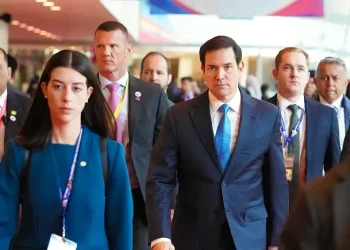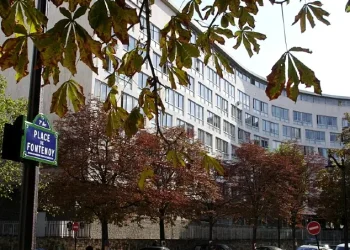A New Chapter in U.S.-Russia Relations
In a diplomatic milestone, U.S. Secretary of State Marco Rubio met with Russian Foreign Minister Sergei Lavrov in Saudi Arabia. The discussions, following President Donald Trump’s recent call with Vladimir Putin, focused on Ukraine peace negotiations, diplomatic normalization, and future economic cooperation. This marks a major shift in U.S. foreign policy and global diplomacy.
Diplomatic Breakthrough: Key Agreements
The high-level meeting addressed urgent geopolitical concerns, with both nations outlining steps to rebuild diplomatic ties:
- Bilateral Relations – A consultation mechanism will address diplomatic challenges.
- Ukraine Conflict – Teams will be appointed to develop a roadmap toward ending hostilities.
- Economic Cooperation – Future investment opportunities will be explored post-conflict.
Both sides agreed that sustained engagement is necessary to ensure progress.
Shifting U.S. Foreign Policy Under Trump
This meeting signals a shift in Washington’s approach, prioritizing direct engagement over previous diplomatic isolation tactics. While the U.S. remains committed to peace in Ukraine, the exclusion of European allies from these initial talks has raised concerns.
Global Reactions and Strategic Implications
European Response
The European Union is adjusting its diplomatic and military strategies:
- Defense Commitments – France plans a 40% increase in Ukraine aid, while Germany considers a €20 billion defense expansion.
- Diplomatic Measures – A new EU special envoy for Ukraine will coordinate peace efforts.
- Economic Support – Plans for a €100 billion Ukraine reconstruction fund are in discussion.
Russia’s Position
Moscow has expressed cautious optimism about direct talks while maintaining firm stances on Crimea and the Donbas region. Officials have hinted at potential troop adjustments if Western sanctions ease.
U.S.-Russia Diplomatic Priorities
| Focus Area | Details |
|---|---|
| Diplomatic Relations | Reopening channels to improve cooperation. |
| Ukraine Peace Talks | Developing strategies for long-term stability. |
| Economic Ties | Planning post-conflict investments and trade policies. |
Future Prospects and Challenges
While the meeting is a diplomatic milestone, obstacles remain. The lack of Ukrainian and European participation raises questions about long-term credibility. Additionally, the issue of war crimes accountability and economic reparations remains contentious.
Looking Ahead
This meeting represents a significant pivot in U.S. foreign policy. Whether this engagement fosters long-term peace or geopolitical tension remains uncertain. As negotiations progress, global stakeholders will be watching closely.
For further insights on evolving U.S.-European foreign policy, explore our in-depth coverage.
Sources: US Department of State, Euro News, Aljazeera and CBS News.









